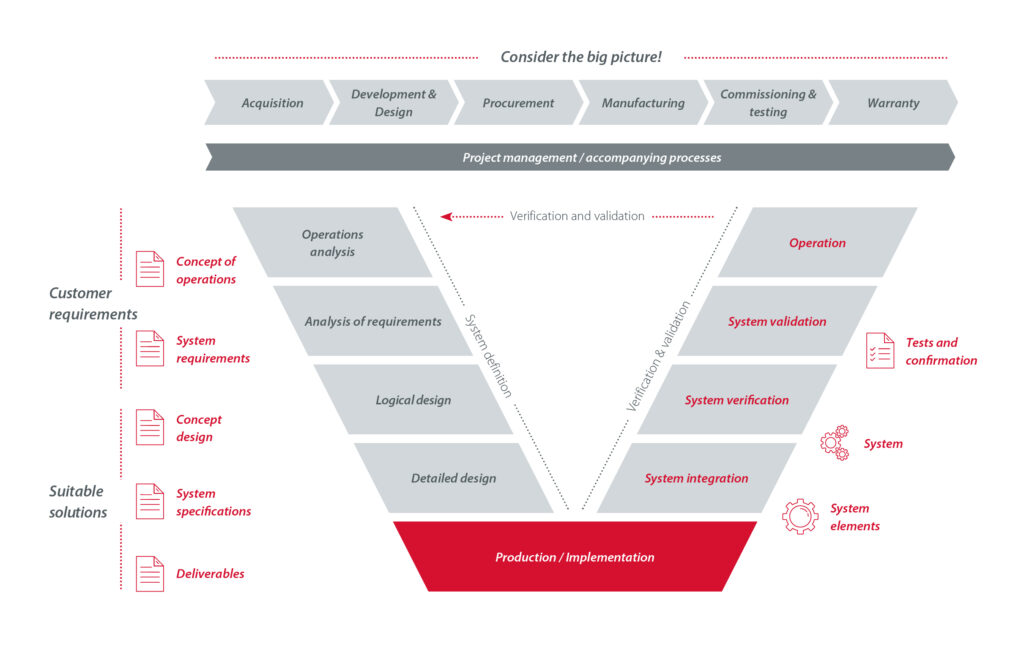From Common Sense to Common Practice
Systems engineering plays an important role in the development of complex products, such as the aerospace industry. In recent years, it has been applied to a much wider field of applications as increasing complexity and numerous risks can be mastered and managed effectively with this methodology. Systems engineering has thus become an indispensable part of large-scale projects.
The essential element are the customer requirements, which are considered over the entire life cycle and validated as part of the development process.
Systems engineering means cultural change
Requirements-based work in interdisciplinary teams, strong process orientation, and thinking in terms of system structures are central elements of systems engineering which is new to many organizations. Therefore, the introduction of systems engineering does not only mean new tools and corresponding qualifications, but is also associated with cultural change. Here, TARGUS’ project experience has helped establish the basis for working in a way that is compatible with systems engineering.
Realizing change with TARGUS
New standards and training are often insufficient to implement the changes effectively, especially when they have to be applied in a project under time pressure. It is important to provide employees with concrete assistance on how the new requirements and working methods can be implemented in specific cases.

Project results
-
Results-oriented introduction of new ways of working
-
Alignment of the activities to customer requirements
-
Validation of customer requirements


